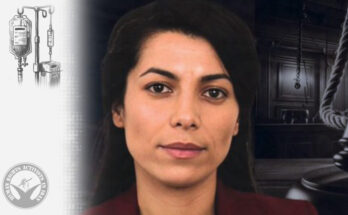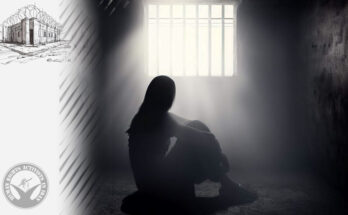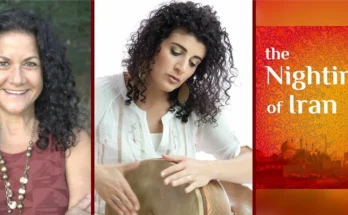Source: RFE/RL’s RadioFarda
The chief of police in Iran’s Alborz Province said on July 17 that women who took part in an Ashura procession in the city of Karaj without hijabs have been “identified and summoned.”
A video posted on Instagram shows a number of young women, most wearing dark clothing but no head scarves, walking in the street in observance of Ashura, a commemoration of the martyrdom of Hussein, a grandson of the Prophet Muhammad, which is marked mainly by Shi’ite Muslims.
To mourn his death, Shi’a wear black during Ashura processions in which many participants beat their backs with chains in a symbolic expression of regret for not being able to help Hussein before his death.
The video of the procession in Karaj on July 16 has been met with widespread reactions on social media.
Hamid Hadavand, the chief of police in Alborz Province, claimed that the publication of the video and others like it had led to “hurting the feelings of Hossein’s mourners” throughout the country.
Hadavand accused the individuals seen in the videos of “desecration,” adding that all of them “have been summoned to the Alborz Province police after being identified.”
He did not say how many people were summoned or how they were identified.
In addition, the head of the Organization of Religious Boards and Organizations revoked the permission granted to the organization that held the Ashura procession in which the young women took part without hijabs.
Majid Babakhani also announced that the head of the organization had been “summoned” with the help of the police and said that he would be dealt with legally.
Ashura is marked on the 10th day of Muharram, the first month of the Muslim calendar. Last year Muharram was also marked by reports of the identification and detention of women without compulsory hijabs across Iran.
Authorities have stepped up confrontations with people who oppose the mandatory hijab law since protests that followed the death of Mahsa Amini in the custody of Iran’s morality police in September 2022 for allegedly improperly wearing her hijab, and there have been frequent reports of violence against detainees.
In recent months, the police again started a security crackdown on women flaunting the compulsory hijab law by reimplementing the Plan Noor initiative under which the morality police strictly enforce dress codes. This has led to several incidents of violence against women challenging the mandatory head scarf.
Before the reimplementation of the Plan Noor initiative the city of Tehran and the Interior Ministry prior employed hijab guards in some subway stations. The interior minister and the mayor of Tehran denied playing any role in this.
Despite these measures, the presence of women and girls without compulsory hijabs in public in Iran has not stopped over the past two years.
Iran is set to swear in moderate reformist Masud Pezeshkian as president early next month. Pezeshkian has said that while the hijab law should be observed, “there should never be any intrusive or inhumane behavior toward women.”




